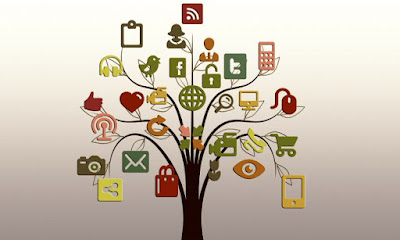 |
| (Image Source: 1) |
The knowledge assets shared in these cafes has broadened the scope for interpretative thinking and understanding. Ideologies and theories are now coined effortlessly over a few dozen comments on a Twitter’s tweet or Facebook’s posts as compared to pre-social media epoch. A recent example being the concept of ‘women empowerment’ being debated and redefined after the ‘honored’ murder of Qandeel Baloch or girls dancing in the middle of Anarkali Bazaar, Lahore to portray harassment (Watch: https://www.youtube.com/watch?v=56neCER7mTQ). These events shook the beliefs of many and soon posts and articles poured in - each defining women empowerment from a different lens.
 |
| (Image Source: 2) |
It’s amazing to visualize how anyone across the globe can share an idea, information or a video on a social site which can go ‘viral’ within a day if not within few hours and the person in question can actually relish on growing number of followings, likes and improved rankings in search engines. Relatable videos of ZaidAliT have earned wide following, fame and impact and so did the television dramas and characters played in them. Cyber bullying of politicians and entertainment figures has become quite a routine so much so that sometimes defaming actually becomes a promotion for the person in question.
 |
| (Image Source: 3) |
The authenticity of knowledge exchanged in social media cafe is a subject of huge concern for intellectually empowered individuals. Many a times, the shared knowledge has created misinformed panic and led to public shaming, bullying and unsolicited commentary on religion and political attire of the country.
Development of knowledge is not to be left on chance. The responsibility lies on the shoulders of knowledge managers to ensure authenticity of knowledge and set down ethics to control damage and negativity.
People should be able to make use of social media tools to increase richness and scope in their networks and expand cognitive abilities to generate new knowledge. Social media has been very helpful in sprouting home-based businesses and providing a forum to many to showcase their hobbies and past times.
Social media unlocks the limitations of conventional knowledge and provides a free platform for knowledge sharing. A knowledge management system needs to be in place to enhance social knowledge processing or social knowledge management by reshaping options of tagging, filtering and ethical conduct for each social media cafes.
Social media unlocks the limitations of conventional knowledge and provides a free platform for knowledge sharing. A knowledge management system needs to be in place to enhance social knowledge processing or social knowledge management by reshaping options of tagging, filtering and ethical conduct for each social media cafes.